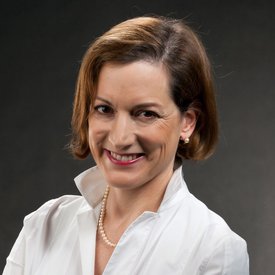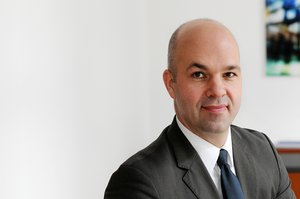Keynote speakers
Washington Post columnist and Pulitzer-Prize winning historian Anne Applebaum

Anne Applebaum (born July 25, 1964) is a columnist for the Washington Post, a Staff Writer at The Atlantic and a Pulitzer-prize winning historian. She is also a Professor of Practice at the London School of Economics and co-directs the LSE Arena, a program on disinformation and 21st century propaganda. She has written extensively about the Soviet Union, the collapse of communism and the development of civil society in Central and Eastern Europe.
Anne Applebaum has written a number of award-winning and widely translated books. Her newest book, Red Famine: Stalin’s War on Ukraine was published in October 2017, and received the Lionel Gelber Prize in 2018. She is a columnist for the Washington Post and her writing have also appeared in The Atlantic, The New Yorker, The Wall Street Journal, the New York Times, the Financial Times, the International Herald Tribune, Foreign Affairs, , The Independent, The Guardian, Prospect, Commentaire, Die Welt, Cicero, Gazeta Wyborcza as well as in several anthologies
Besides her many book prices, Anne Applebaum has received the Estonian Order of the Cross of Terra Mariana third class, the Lithuanian Millenium Star and Petőfi Prize all in recognizing of her efforts made to advance freedom and democracy of Eastern European nations.
Webpage:
www.anneapplebaum.com/anne-applebaum/
Anne Applebaum's keynote lecture at the MatchPoints Seminar 2020 is titled
Europe and the German Question
Bismarck once said that "the great questions of the day will not be settled by means of speeches and majority decisions but by iron and blood." Yet modern Germany has adopted exactly the opposite point of view. Until the present, Germany's neighbors have welcomed and encouraged a pacifist Germany with no foreign policy ambitions. But in a world dominated by autocrats, is this anti-Bismarckian Germany still good for Europe and the world? This pertinent question will constitute the entry point of Anne Applebaum’s keynote lecture at MatchPoints2020 in which she use history as a prism for understanding present day politics, in casu the German approach and understanding of its role in European and international politics.
Professor Dr. Astrid Erll

Astrid Erll is professor of Anglophone Literatures and Cultures at Goethe-University Frankfurt and founder of the transdisciplinary forum Frankfurt Memory Studies Platform. She is known for her comprehensive work on cultural memory and has developed narratological, transcultural, and media theory approaches for the field of memory studies. Currently Astrid Erll is working on the research project “Odyssean Travels: A Literary History of Cultural Memory“, about the reception of Homer as cultural memory.
Astrid Erll has published articles in leading international journals such as Journal of Aesthetics & Culture and Memory Studies. She has also written a number of books as well as contributed to anthologies about media theory, transcultural studies, comparative literature, cultural theory and of course cultural memory.
Astrid Erll has received the Justus Liebig University Dissertation Prize for the best dissertation in the School of Language, Culture and Literature in the academic year 2002/2003. In 2005 she received the Justus Liebig University Award for Excellence in Post-doctoral Research and in 2008 the University of Wuppertal award for Excellence in Teaching.
Webpage: https://www.uni-frankfurt.de/76467309/Prof__Dr__Astrid_Erll
Astrid Erll's keynote lecture at the MatchPoints Seminar 2020 is titled
Odyssey 2020: Migration, Narration, and Memory in Europe
Migration is not new. It is one of the oldest phenomena in human history, in fact one of its few constants. But current mass migration is widely perceived as a new and major challenge for Europe. What is going on – at sea, on land routes, and in refugee camps – and what is at stake? What are the reasons for mass migration? And what are prospects for the future? The complexity of these questions calls for narrative as a form of understanding. And indeed, major interventions in European discourses on migration not only use facts and figures, but also tell sweeping stories, which often draw on existent templates: on age-old narratives about people on the move.
In my lecture I will discuss some of the ‘migrant stories that Europe lives by’, from the Odyssey to the Canterbury Tales, and consider how these are mobilized in journalism, activism, political and historical writings, in films, and in children’s books. I ask how cultural memory and its narrative resources preform current perceptions of migration. Stories are like small gifts transmitted via cultural memory. They should be handled with care. Their narrative logic is often a powerful agent in its own right, unfolding ethically and politically relevant messages.
Professor Ole Wæver

Ole Wæver (born September 17, 1960) is s a professor of International Relations at the Department of Political Science, University of Copenhagen, and founder of the research centers CAST (Centre for Advanced Security Theory) and CRIC (Centre for Resolution of International Conflicts). Within the field of international politics, he is known for his security theoretical concept of 'securitization' and for his work on security politics, international relations and conflict solution. In his recent writings in relation to securitization theory Ole Wæver have applied the theory 'securitization' to religion and climate change. Hereby contributing to a revitalization of the field of conflict studies.
Ole Wæver has published articles in leading international journals such as Ethics & International Affairs and Journal of Peace Research and written and edited about 25 books. Many of which has been translated into several languages.
Ole Wæver was elected to the Royal Danish Academy of Sciences and Letters in 2007; and he was the 2012 humanities/social science recipient of the research prize of the Carlsberg foundation. He became Knight of the Order of the Dannebrog in 2014, was the first recipient of the Hesbjerg Foundation Peace Prize in 2015; and received an honorary doctorate from University of Turku in 2015.
Webpage:
Professor, Ph.D. and President of DIW Berlin Research Marcel Fratzscher

Marcel Fratzscher is an economist, author and columnist on economic and social issues. He is President of the German Institute for Economic Research (DIW Berlin) - one of Europe’s leading independent research institutes and think tanks - and Professor of Macroeconomics at Humboldt-University Berlin. He is member of the High-level Advisory Board of the United Nations on the sustainable development goals (SDGs), Member of the German-French Council of Economic Experts of the German and French Government, Associate Editor of the Journal of International Economics, member of the scientific advisory board of the German Ministry of the Economy and member of the supervisory board of Hertie School of Governance. He engages for the equality of opportunity for disadvantaged children as member of various boards for Kreuzberger Kinderstiftung, Deutschland Rundet Auf and Welthungerhilfe. His work focuses on macroeconomics, inequality and European integration. He has published three books in German and English since 2014, has a bi-weekly column in Zeit Online (in German) and regularly contributes op-eds in the German and international media, including the Financial Times, Wall Street Journal and Project Syndicate. He is one of Germany’s best-published economists and has received several awards for his academic and policy work. He is a European and German citizen.
Marcel Fratzscher's keynote at the MatchPoints Seminar 2020 is titled:
The Germany Illusion – Between Economic Euphoria and Despair
In his MatchPoints keynote lecture professor Marcel Fratzscher will - based on his recent book The Germany Illusion: Between Economic Euphoria and Despair - address the apparent paradox of the German economic performance of the 21st Century. On the one hand an economic success story characterized by an employment miracle, strong global competitiveness and sound fiscal policies. The country has brought more than five million more people into employment and has reduced the unemployment rate to less than 5%. The economy has been hugely competitive and has gained impressive market shares in international markets while at the same time contrary to many other countries of the industrialized world managed to reduce its public debt and running fiscal surpluses since 2012.
On the other hand, Germany has seen less economic growth than many other EU countries since the introduction of the Euro, for instance 10% less than the Spanish economy and 3% less than the French. This poor performance is reflected in low productivity growth that is, in turn, due to one of the lowest investment rates among industrialized countries, a feature threatening to limit future growth and prosperity even further. In summary the German economy of today is faced by five major weaknesses: Slow economic and productivity growth, an underemployment problem, a social protection problem, one of the highest levels of inequality in the EU and a government living beyond its means.
In his keynote professor Fratzscher will critically discuss what this means for Germany and for Europe.